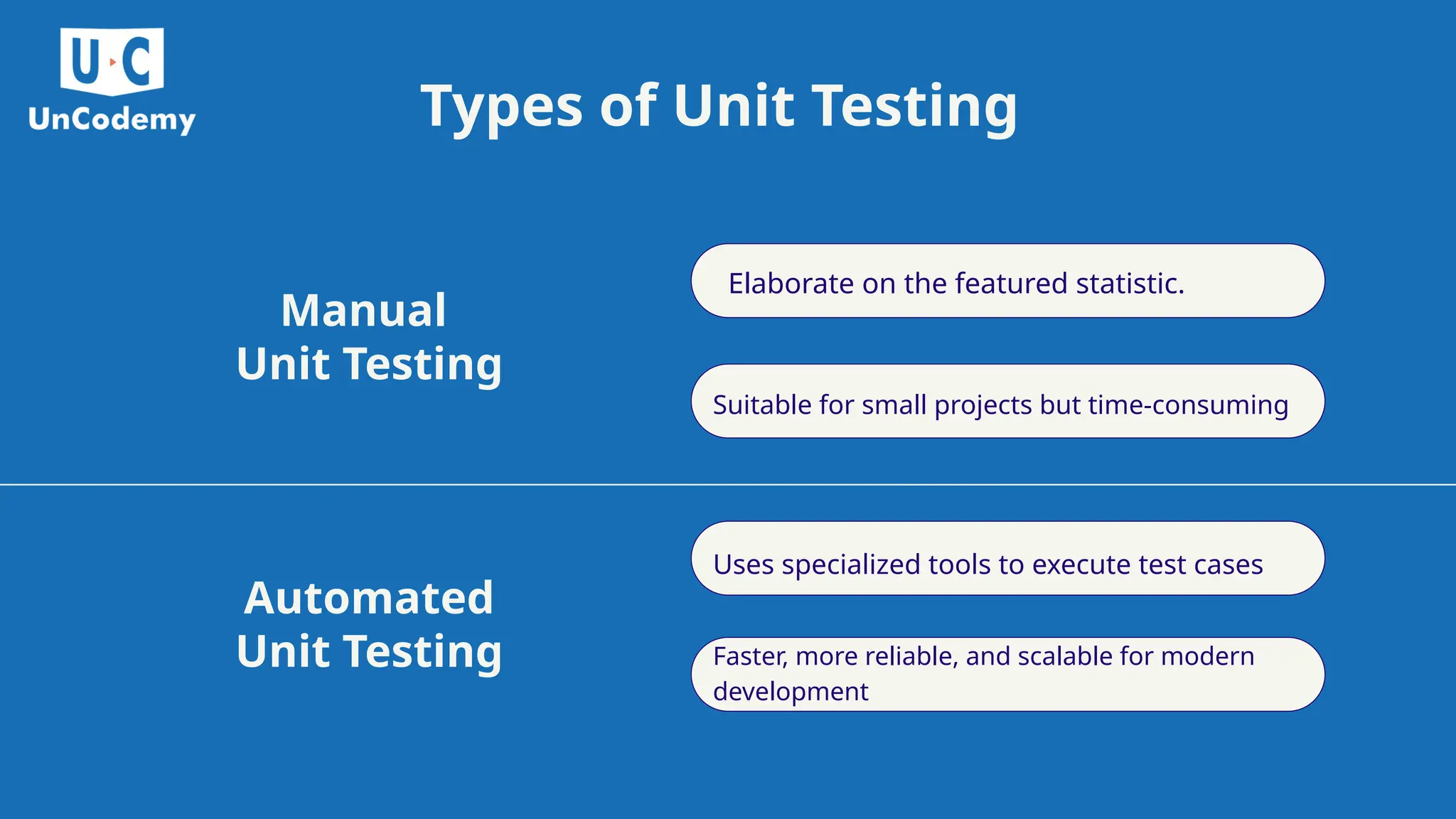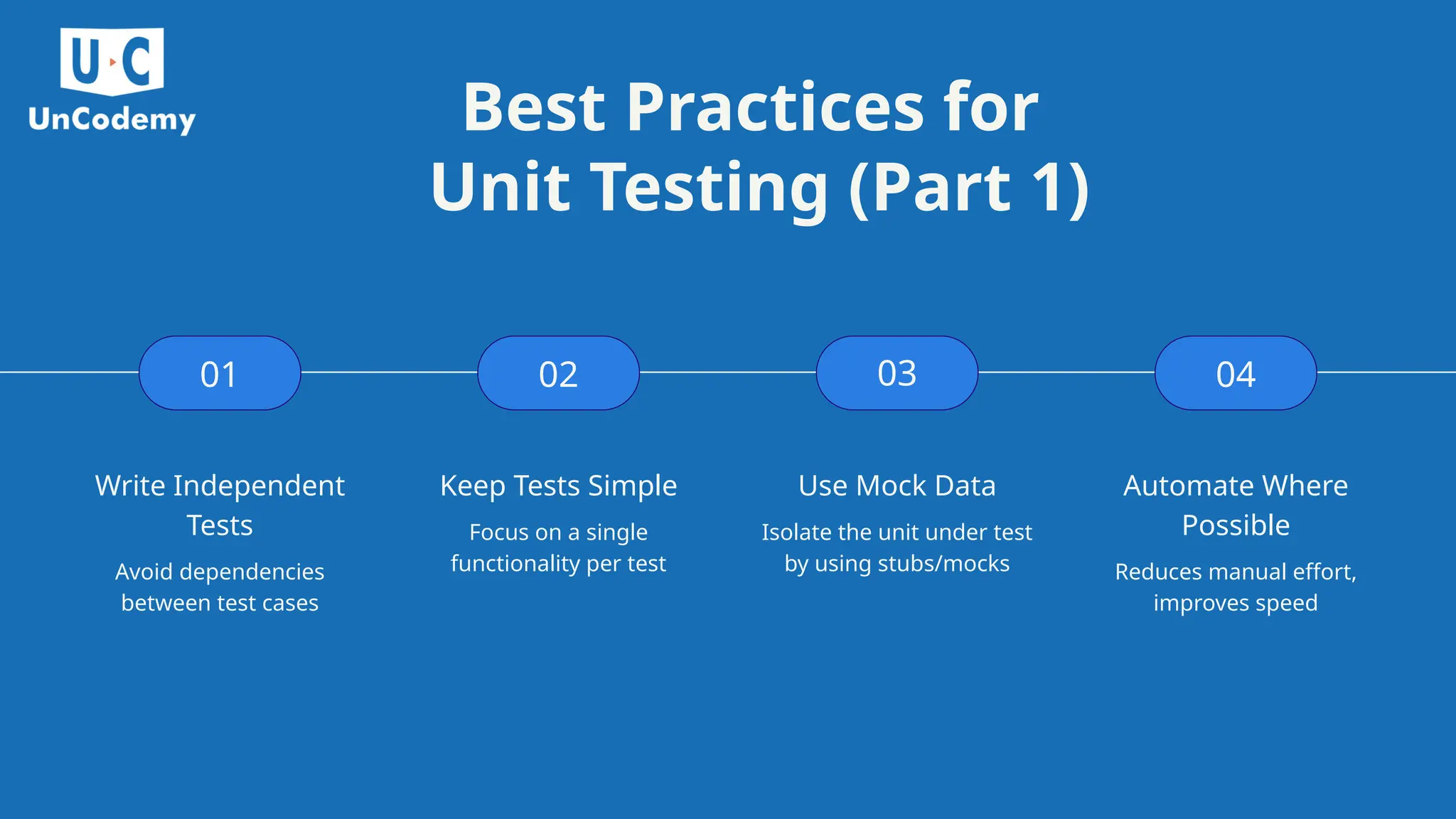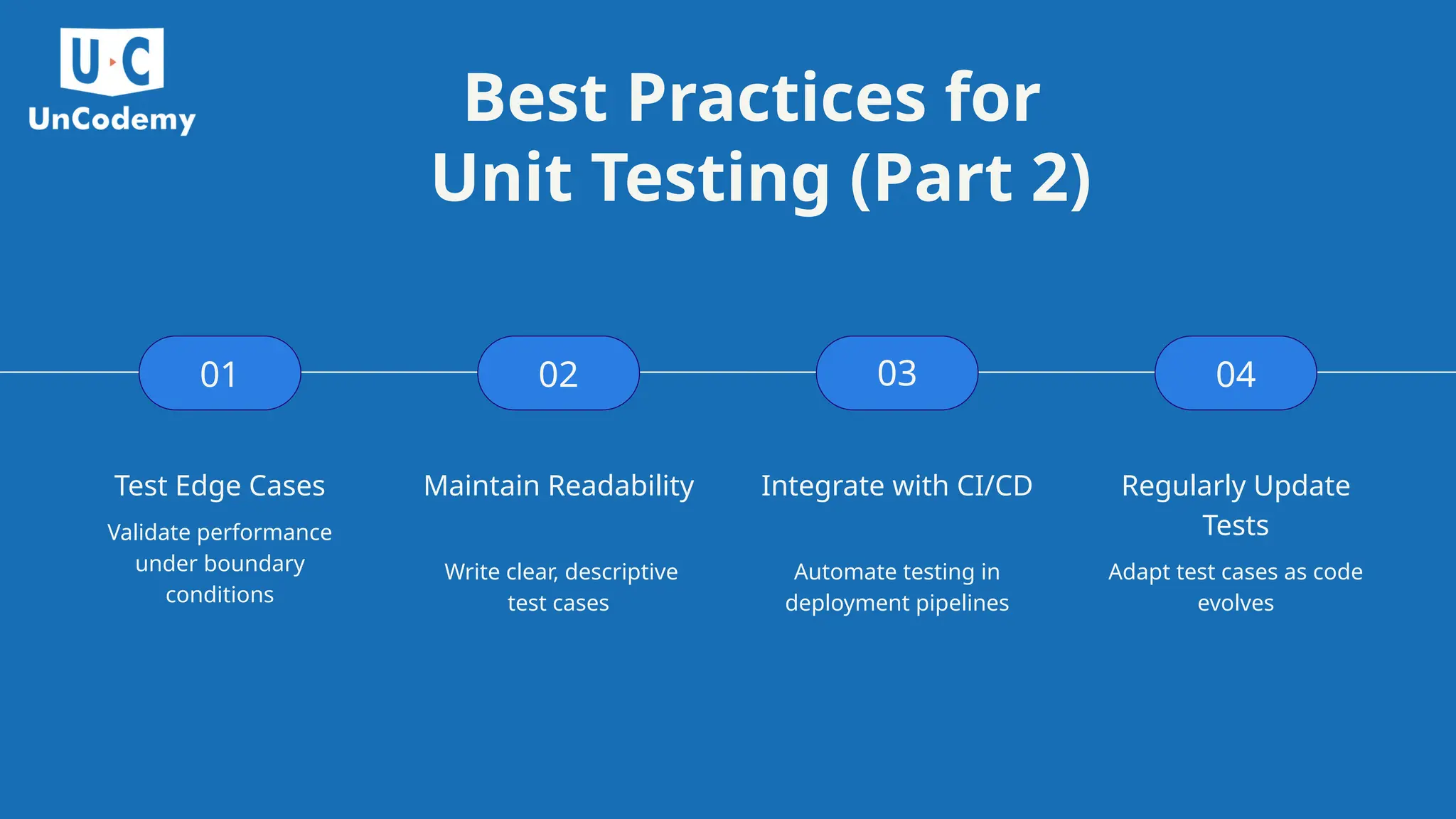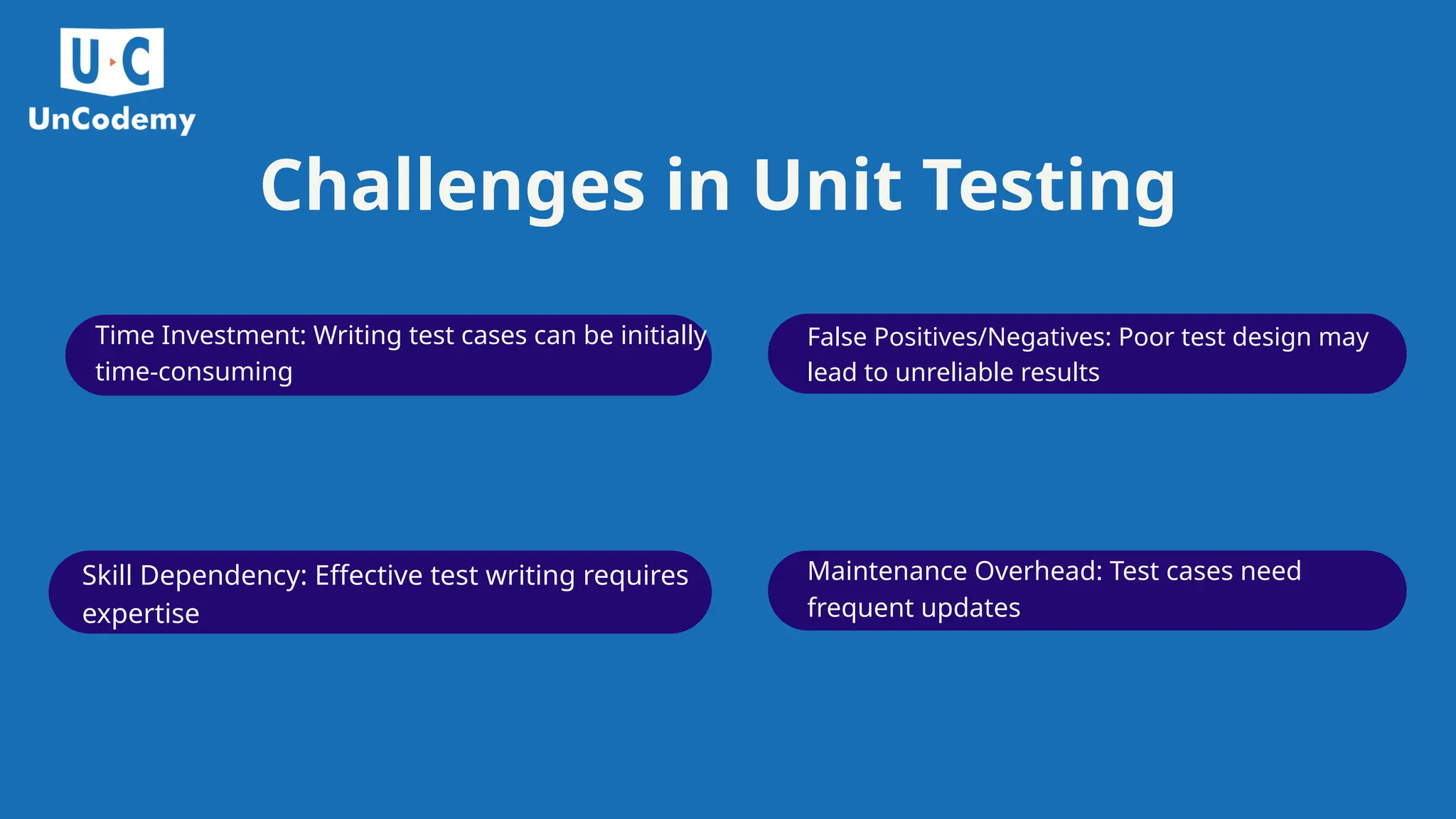Unit testing evaluates individual software components to ensure functionality and detect bugs early in development. It is important for improving code quality, supporting agile methodologies, and facilitating debugging, though it requires a time investment and expertise. Best practices include writing independent tests, maintaining readability, and automating where possible to enhance efficiency.









